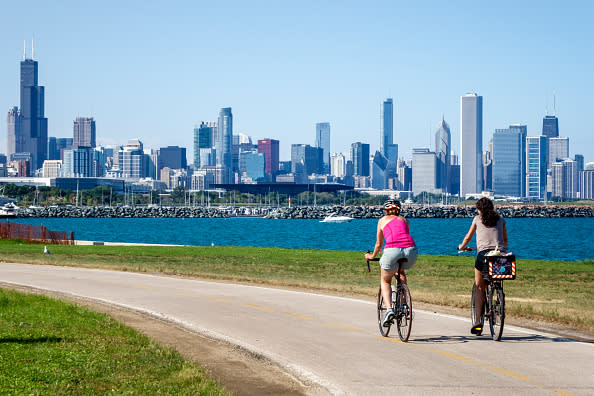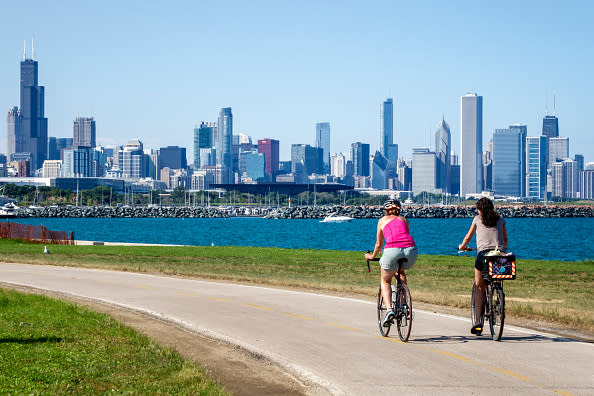Chicago Could Soon Become the Largest American City to Give Universal Basic Income a Try
If one local politician gets his way, Chicago could become the largest city in the U.S. to trial a universal basic income program.
Chicago lawmaker Ameya Pawar has thus far received support from 36 co-sponsors on a bill to introduce the pilot program. If the bill receives adequate support, it will be voted on by City Council. If the bill passes, it could then be enacted, so long as Chicago mayor Rahm Emanuel doesn't veto the approval.
My legislation calling for the creation of a Chicago #UniversalBasicIncome pilot has 36 co-sponsors! On to the Commitee on Workforce Development and Audit. Committee chair @40thWard is also a sponsor. More soon! #UBI pic.twitter.com/W7D5Hbx31E
— Ameya Pawar (@Ameya_Pawar_IL) June 27, 2018
The proposal entails giving $500 a month--no strings attached--to 1,000 families in Chicago. The bill also calls for a change to the Earned Income Tax Credit program for these same families, to enable them to receive tax credits on a monthly, rather than annual, basis.
Pawar explained to The Intercept that automation has the potential to threaten millions of jobs, which in turn could serve to foment or perpetuate racial and social divisions. "We have to start talking about race and class and geography," he explained, "but also start talking about the future of work as it relates to automation. All of this stuff is intertwined."
“We need to start having a conversation about automation and a regulatory framework,” Pawar argued, because if jobs “simply go away…divisions are going to grow and, in many ways, we're sitting on a powder keg."
He therefore hopes that padding families' incomes, thereby offsetting some financial need, could help avoid resentment.
"Nearly 70% of Americans don't have $1,000 in the bank for an emergency," Pawar said. "It's time to start thinking about direct cash transfers to people so that they can start making plans about how they're going to get by."
Alaska already has a similar program in place, and Michael Tubbs, the mayor of Stockton, Calif., plans to begin an 18-month universal basic income trial next year.
See original article on Fortune.com
More from Fortune.com


